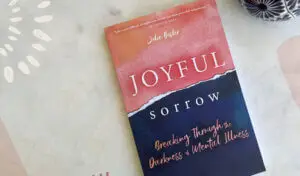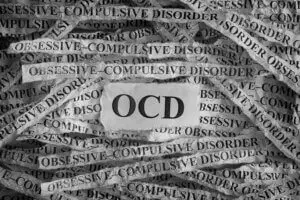Radical Love: How to Have Healthy Relationships with Unhealthy People
January 7, 2025

My colleagues and I are seeing a trend in the counseling room, and it goes something like this:
“She’s toxic, so I had to cut her off.”
“I don’t speak to my mother anymore. I had to draw a boundary.”
“I don’t have the capacity to deal with her, so I blocked her.”
Sound familiar?
We live in an age of little tolerance for difficult relationships. We are an individualized society with limited patience for relational long-suffering or “drama.” We want people in our lives to be easy, and when they’re not? We’re out.
Truthfully, some unhealthy relationships we experience may eventually call for a time when we have to walk away — but not as often as the culture tells us to. As believers, we are called to more.
How do we have healthy relationships with unhealthy people?
Remember your calling.
Jesus took people’s understanding of the law (“Love your neighbor”) and raised the bar in inconceivable ways (“Love your enemies too”). He walked toward, not away from, the physically, emotionally, and spiritually sick. He demonstrated with words and actions the radical mandate to love not only those who are easy to love but also those who are difficult.
When we encounter difficult people, our knee-jerk reaction is to create distance and wash our hands of them, but Jesus says, “Not so fast.” Because the gospel is true, we can afford to love those who are difficult to love, drawing on the Lord’s abundant resources when we feel as though we don’t have it in us to show up anymore. We can afford to work through relational difficulties with honesty and grace instead of ejecting so quickly. Remember your calling to love as Jesus loved and remember that His Spirit in you is what enables you to do that.
Redefine your understanding of boundaries.
The word boundaries is modernly defined as “You’re difficult, so I’m cutting you off.” However, the true purpose of a boundary is to enable you to love someone better.
For example, if someone in an unhealthy place is demanding your time and energy, and you drop everything to help them every time they call, you will eventually grow bitter and resentful. You might start avoiding them or become short tempered. However, if you draw a healthy boundary and clarify when you can help and when you can’t, you will experience less opportunities for resentment to grow. By drawing a boundary, you’re saying, “Because I care about you and our relationship, I’m putting this in place.”
Here are a few examples of healthy boundaries:
- Not sharing deep things of your heart with someone who is not in a place to care for those tender places well
- Saying no when you are asked to extend yourself at the expense of your or your family’s health or safety
- Entrusting the person to God’s sovereign care instead of taking on the responsibility of “fixing” them
When properly applied, boundaries are vital tools that can enable you to stay in relationship with someone who is in an unhealthy place.
Realize your limitations.
Romans 12:18 says, “If it is possible, as far as it depends on you, live at peace with everyone” (NIV). The only thing you can control in a relationship is your part in it. You have no control over the other person’s part.
Despite your best efforts to love someone who is in an unhealthy place, they may become increasingly unhealthy. They may behave in destructive ways that make staying in relationship with them impossible. Maybe patterns of deceit make it unwise to trust them, or some form of abuse is present.
Notice the caveat in Romans 12:18: “If it is possible … live at peace” (emphasis added). Sometimes it’s not possible, and in order to protect yourself from harm, you have to walk away.
This can feel devastating. You may even feel guilty. However, remember that God is the One who is ultimately in control and has the power to heal brokenness. If you have to walk away, do so knowing you can entrust that person to the care of the One in whom “all things hold together” (Col. 1:17) so you don’t have to try and hold it all.
Remember your calling to love even when it’s difficult, establish healthy boundaries that enable you to love better, and realize your ultimate hope is not in your best efforts but in a God who is ever faithful to you and the one you are struggling to love.
Jennifer Phillips is a licensed professional counselor at Restore Ministries in Birmingham, Alabama. She is also a speaker and the author of Bringing Lucy Home and Hope When It’s Hard, as well as the coauthor of Unhitching from the Crazy Train: Finding Rest in a World You Can’t Control. She is a wife and mother of four and loves reading great books, writing, and spending time with her family.
Disclaimer: The information shared in this article is not meant to diagnose or treat a mental health condition. We encourage you to follow up with your health-care provider and seek a mental health professional for individual consultation and care.























